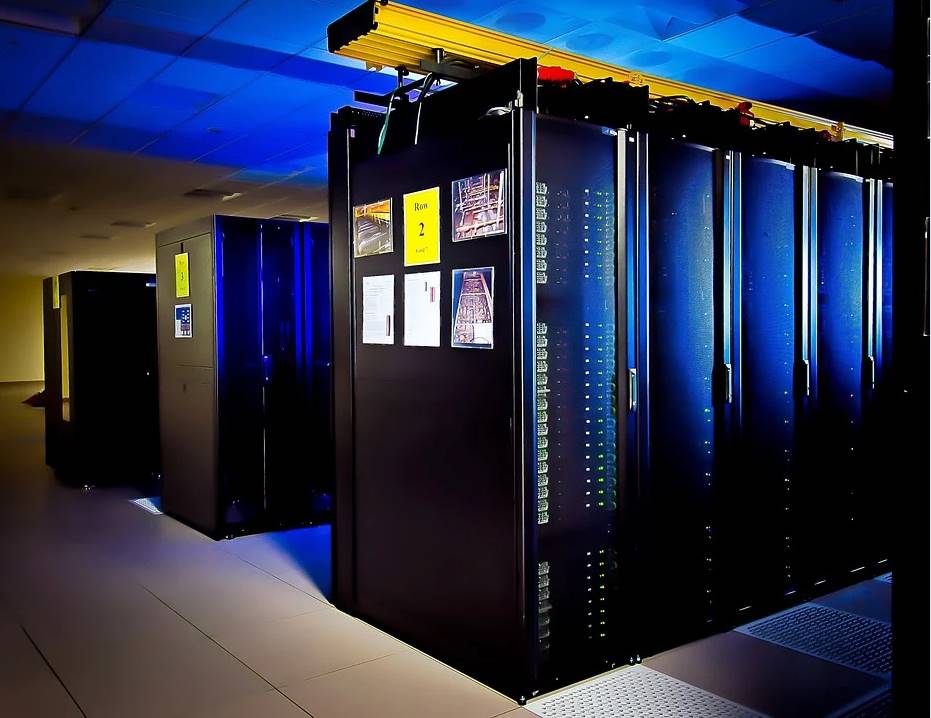- Número: 151
- Autor(es): Henrique Alpalhão, Marta Lopes, João Santos and José Tavares
- Mês: Junho
- Ano: 2020
We investigate the causal relationship between local government expenditure and private firm performance, using the quantity and naming of civil parishes within each municipality as an instrumental variable. Religious denominations are taken as a proxy for strong local identity, which likely increases competition for resources between neighboring parishes. We explore a dataset on the universe of private firms, local government expenditure categories and socio-economic indicators for all mainland Portuguese municipalities, in a period encompassing both normal and crisis times. The number of parishes per municipality, as exogenously set by the central government, and the number of parishes that display religious denominations are both used as instruments that explain local government spending, indirectly impacting firm performance. We find that both display considerable power in determining total primary and current spending, which then positively impacts private firms' sales and value added. Using religious denominations is found to yield a particularly potent instrument, confirming and expanding the baseline results. In a field that mostly relies on natural experiments for instrumental variable frameworks, our proposed instruments are both easily obtainable and powerful.
- Número: 150
- Autor(es): Pedro N. Ramos, João Ferreira, Luís Cruz e Eduardo Barata
- Mês: Maio
- Ano: 2020
Os modelos input-output propõem-se representar as interdependências setoriais, a densa rede das relações entre produções de diferentes produtos, no seio de uma economia. Às interdependências setoriais juntam-se muitas vezes relações entre espaços regionais. Na última década, o desenvolvimento de modelos inter países, cobrindo toda a economia mundial, permitiu à análise input-output conquistar importância crescente, uma vez que permite traçar e caracterizar, detalhadamente, cadeias globais de valor. O eclodir da crise da COVID-19 vem reforçar a importância da análise da estrutura setorial das economias e acentuar ainda mais o interesse pelas cadeias de valor à escala mundial. É notório que a paralisação das economias, por razões sanitárias, pode deixar sem componentes imprescindíveis várias empresas, muitas vezes noutro(s) continente(s), levando à interrupção dos seus processos produtivos. Também a alteração dos perfis de procura poderá ter consequências dramáticas, e diferenciadas nos diferentes cantos do mundo. Usando o modelo World Input-Output Database (WIOD), desenvolvemos um exercício hipotético em que dividimos os produtos em essenciais e não essenciais, e admitimos uma quebra para metade da procura final dos não essenciais. Admite-se um choque simétrico, mas os países são atingidos com intensidade díspar, em função da desigual estrutura das suas economias. O objetivo é o de descortinar tendências, permitindo identificar quais os mais afetados pelo efeito da alteração do padrão global do consumo, nomeadamente em termos do Valor Acrescentado Bruto e do comércio internacional.
- Número: 149
- Autor(es): Paulo Matos and Pedro Neves
- Mês: Abril
- Ano: 2020
Quaternary activities have been on the rise, as a consequence of the increasing technological developments and work automation, as they are expected to have an impact on both the future of the job market and the overall economy. As such, and considering that Total Factor Productivity (TFP) constitutes a main driver of output growth, we propose to study its determinants for the quaternary sector. First, we establish several criteria to build our own definition of quaternary activities, as they are not acknowledged in national accounts or other statistics. For such purpose, our empirical assessment is based on a firm level panel dataset, comprising Portuguese firms, between 2006 and 2017. Secondly, we employ the Levinsohn and Petrin (2003)’s methodology to estimate TFP at the firm level. Finally, through a second stage estimation, we build a fixed effects model based on several determinants said to impact firms' TFP, and establish a comparison with the remainder sectors of economic activity. Both descriptive statistics of the database and the final regression outputs provide evidence that quaternary activities differ from the remainder in several characteristics. Our results show that innovation, wage premium and international openness rise the level of TFP, while indebtedness presents an opposite correlation. The age and size of the firm show a non linear relationship with TFP.
- Número: 148
- Autor(es): Ana Rodrigues Bidarra
- Mês: Abril
- Ano: 2020
A economia digital revolucionou a estrutura tradicional e o funcionamento dos mercados. Os dados pessoais são considerados o “novo petróleo” da actividade económica, um recurso fundamental cuja recolha e análise em larga escala são potenciadas pelo desenvolvimento das TIC. A simbiose entre Big Data e Big Analytics pode promover um ambiente concorrencial benéfico, para empresas e consumidores, mas à medida que se expandem as fronteiras da inovação e da ciência surgem preocupações que colocam em causa esta nova dinâmica de mercado. Pugnamos que, na circunstância em que as empresas concorrem nos mercados digitais orientados por dados e os consumidores, enquanto titulares de dados pessoais, são negativamente afectados, designadamente pelo decréscimo da qualidade do tratamento dos dados pessoais, há lugar à intersecção entre o direito da concorrência e o direito da protecção de dados que justifica uma intervenção coordenada com vista à análise holística das questões suscitadas. As plataformas digitais multilaterais com modelos de negócio assentes na monetização de Big Data através da publicidade apresentam um desafio aos instrumentos de concorrência tradicionais, baseados no preço, que se encontram desadequados para proceder a uma apreciação cabal destes mercados. Através da análise da decisão da CE na operação de concentração Facebook/WhatsApp demonstramos a necessidade de melhor compreensão do funcionamento das plataformas multilaterais e a premência na adequação das ferramentas de análise jusconcorrenciais à apreciação das concentrações motivadas por dados num contexto digital.
- Número: 147
- Autor(es): Yassine Lefouili and Joana Pinho
- Mês: Abril
- Ano: 2020
This paper explores the incentives for, and the effects of, collusion in prices between two-sided platforms. We characterize the most profitable sustainable agreement when platforms collude on both sides of the market and when they collude on a single side of the market. Under two-sided collusion, prices on both sides are higher than the competitive prices, implying that agents on both sides become worse off as compared to the competitive outcome. An increase in cross-group externalities makes two-sided collusion harder to sustain, and reduces the harm from collusion suffered by the agents on a given side as long as the collusive price on that side is lower than the monopoly price. When platforms collude on a single side of the market, the price on the collusive side is lower (higher) than the competitive price if the magnitude of the cross-group externalities exerted on that side is sufficiently large (small). As a result, one-sided collusion may benefit the agents on the collusive side and harm the agents on the competitive side.
- Número: 146
- Autor(es): Filomena Garcia and Muxin Li
- Mês: Abril
- Ano: 2020
In this paper we study the effects of the introduction of a new two sided platform endowed with artificial intelligence in a market where a firm provides a brick and mortar platform to buyers and sellers. In our theoretical model we show that the decision of whether to introduce the new platform depends on the reduction of the search cost for the consumers. We also show that the introduction of the platform enlarges the market with more consumers using both platforms. Finally we study the welfare effect of the introduction of the platform opening the discussion on whether certain artificial intelligence devices for shopping should be regulated.
- Número: 145
- Autor(es): Michele Cincera, Julie Delanote, Pierre Mohnen, Anabela Santos and Christoph Weiss
- Mês: Março
- Ano: 2020
Companies in advanced economies are facing new challenges. Investment in intangible assets – such as R&D expenditures, ICT activities, the cost of training employees and spending on improving the organizational process – has gained relevance to overcome market pressure. In the last decade, many studies discussed the impact of intangible investment on firms’ performance. However, comparison of the effect of different types of intangible investments is less well explored. The paper aims to fill this gap by assessing the impact of several intangible investments on productivity using for the first-time data from the EIB Survey on Investment (EIBIS) covering all 28 EU members, in the period 2015-2017. We allow intangible investments to affect productivity through innovation, using an augmented version of the Crépon-Duguet-Mairesse (1998) model. Our results show that all types of intangible investments positively impact labour productivity. However, ICT and acquisition of new skills are more important for explaining productivity gains than R&D investment and organizational improvements. Furthermore, R&D and ICT investments also affect productivity indirectly through their effects on innovation, which itself increases productivity.
- Número: 144
- Autor(es): Marcelo Duarte e Fernando Carvalho
- Mês: Março
- Ano: 2020
The growing awareness of the importance of national systems of innovation on countries’ development led to an increased availability of instruments designed to measure and compare the innovative capacity of countries. Such instruments provide policymakers with a panoply of relevant information, with which they can stimulate innovation within their territory, thereby increasing national competitiveness. Among the most used innovation indices, the Global Innovation Index stands out by explicitly distinguishing innovation inputs and outputs. Drawing from the Global Innovation Index input-output framework and extant literature on innovation, we intend to answer the question: Which innovation inputs are more strongly related to innovative outputs? Thus, deriving policy implications aimed at improving Portugal’s innovative readiness. Based on a conceptual model, we developed a panel dataset, grounded on the Global Innovation Index framework, composed by 92 countries during the period 2013-2018, and analysed it through a series of multiple regression techniques.
- Número: 143
- Autor(es): Paulo Nuno Vicente, Margarida Lucas e Vânia Carlos
- Mês: Março
- Ano: 2020
Over the past decade, the societal impact of digital transformation, with the prospects of a Fourth Industrial revolution, has led to an innovation imperative in European policymaking regarding Higher Education Institutions (HEIs). This article examines Portuguese universities and polytechnic institutes, the two components of the national higher education system, in order to (1) characterize digital infrastructure, networks and equipment availability (hardware and software), (2) describe the self-reported digital practices among Portuguese HEIs’ faculty members, and (3) verify the alignment between faculty members’ digital practices, teaching environment and European recommendations for digital education. The study, descriptive in nature, conducts the most comprehensive online questionnaire available to date on digital innovation in Portuguese HEIs (N=547). The main constraints to digital innovation in Portuguese higher education teaching are the limited infrastructure and resources, a conservative academic culture, a lack of funding opportunities, insufficient technological resources and technical support.
- Número: 142
- Autor(es): António Alberto Nifrário de Pinho Tavares
- Mês: Março
- Ano: 2020
Debureaucratization initiatives are usually welcomed due to the anticipation of its benefits. Although such was the case of Simplex, its effectiveness is yet understudied and thus this scientific article aims to make a balance of the implementation of Simplex project. This balance covers both its effectiveness on the specific case of the Portuguese Social Security System as well as its levers and blockages in the ultimate goal of debureaucratize. The scarcity of information about Simplex impact encouraged this exploratory research as well as the methodological option that backed up a qualitative approach. To meet the study’s goals, this paper also incorporated theoretical elements of the literature review. We selected two Social Security stakeholders as our target groups – accountants and officials. With the former, we conducted individual semi-structured interviews, and with the second, we made focus groups. Findings suggest Simplex is much more than deadlines and cost decrease, and improving people’s lives. It is not just information and communication technologies (ICT), administrative simplification and legislative simplification, or as we called it, the triangle of drivers legislation, technology and procedures, but it is much more.



